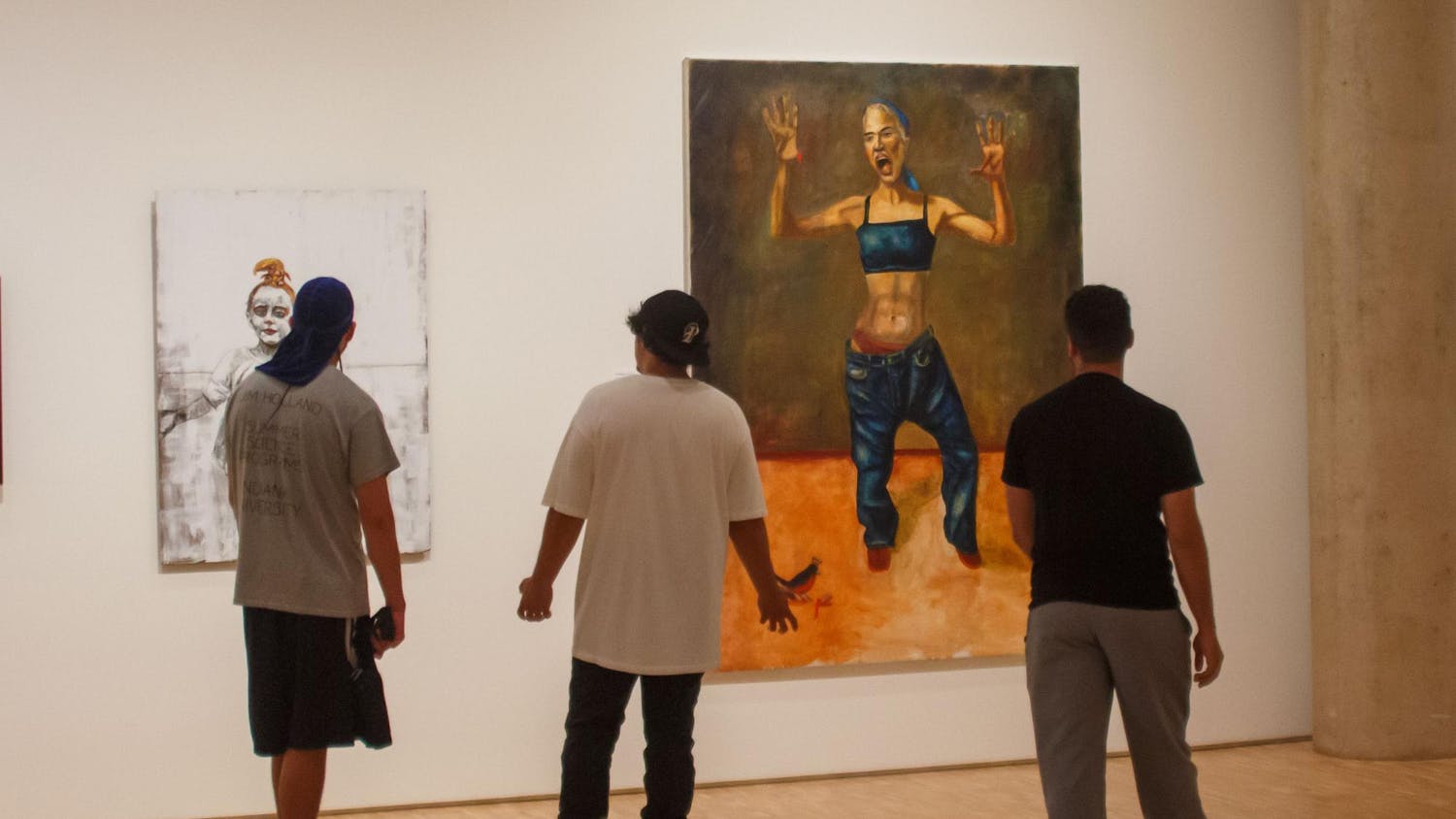MEXICO CITY -- A year ago, Rinko Kikuchi was appearing in mothball ads on local Japanese television. Today, she's nominated for an Academy Award as the world breaks into that most exclusive of clubs: the Oscars.\nNo matter who wins at the Feb. 25 ceremony, the global movie community is already gushing over this real-life version of a Hollywood feel-good movie.\nThis year's lineup is the most ethnically diverse ever, with five black people, two Hispanics and an Asian among the 20 acting nominees. Best-picture nominee "Letters From Iwo Jima" is almost entirely in Japanese. Hispanics alone garnered a record 19 nominations, including three Mexican directors contending for some of the biggest prizes of the night.\n"They represent us," declared a headline in the Mexico City newspaper El Universal.\nNo film better exemplifies Hollywood going global than "Babel," from Mexico's Alejandro Gonzalez Inarritu, a saga of families on three continents linked by tragic events in the African desert. It received seven nominations, including for best picture and best director, and has dialogue that jumps among Arabic, Berber, Spanish and Japanese.\n"It's a joy. American cinema is receiving people from all over the world -- this can open the doors for everybody," said Mexico's Adriana Barraza, nominated for her supporting role in "Babel."\n"Nowadays we are a global society -- people are thinking in global terms, and I think it touched society as such," she said of "Babel," speaking in Spanish from Miami.\nIn Japan, euphoria has erupted over Kikuchi's nomination, also for a supporting role in "Babel." No one from Japan has won an Oscar since Miyoshi Umeki, for her supporting role in "Sayonara" in 1957.\nMoviegoers are flocking to theaters in Tokyo, while tourist agencies are offering cruises to the island of Iwo Jima after Clint Eastwood's film renewed interest in the World War II battleground.\nSince her acting debut eight years ago, Kikuchi, 26, had been confined to low-budget movies, television dramas and commercials.\n"We really hope she would win since it would be great for a Japanese person to be given recognition on the world stage," said Naeko Natsume, who helped produce the Japan portion of the film.\nEurope is also basking in the glory. The large number of Britons nominated even caught the attention of Prime Minister Tony Blair, who called it "a real tribute to the increasing strength of the British film industry and to the incredible talents of all who work in it."\nThe Scotsman newspaper declared, "The Brits are coming--again!" referring to director Colin Welland's famous line accepting an Oscar for "Chariots of Fire" in 1982. Judi Dench ("Notes on a Scandal"), Kate Winslet ("Little Children") and Helen Mirren ("The Queen") grabbed three of the five best-actress nominations while Stephen Frears ("The Queen") and Paul Greengrass ("United 93") are up for best director. Irish-born Peter O'Toole ("Venus") also is vying for best actor.\nIn Spain, hardly a day goes by without a photo of best--actress nominee Penelope Cruz ("Volver") in newspapers recording her every movement, from revolving-door boyfriends to California shopping escapades.\nWhile the broadening of Hollywood has touched many corners of the world, in Sierra Leone few even know what the Oscars are, even though the West African nation's bloody civil war is the focus of "Blood Diamond."\nDjimon Hounsou, a naturalized U.S. citizen who was born in the West African country of Benin, is up for his supporting role as a fisherman struggling to save his family in the war.\nAlthough only a few private copies are available in Sierra Leone and the film has yet to hit theaters in Hounsou's native Benin, "Blood Diamond" has brought the world's attention back to how diamonds have too often meant war and suffering in Africa.\nGaston Kabore, an awardwinning filmmaker from Burkina Faso, called Hounsou's nomination "an individual success that does not suffice to fill in the gap between the African film industry and Western, but it shows that we have talented individuals. It gives psychological and moral impact and it gives the feeling that Africa has heroes, talented actors."\nThe same goes for Latin America. Mexico's Isidra Hoil Mukul, a 7--year--old Mayan Indian who speaks only a few words in Spanish, had never even been to a movie theater before a film scout recruited her to play the one who predicts her people's tragic demise in Mel Gibson's Oscar--nominated "Apocalypto."\nInterpreter Mary Coba said the scout first had to explain to the girl what a movie is. Then they took her to see a children's film before flying her to Mexico City for an interview with Gibson.\n"I liked working on the movie 'Apocalypto' because I got to meet a lot of people," Isidra said at a news conference, speaking softly in her native Mayan dialect.\nBut she said fame has not gone to her head: "I'm still the same"
Global film community gushes over being invited into the Academy Awards club
Get stories like this in your inbox
Subscribe




